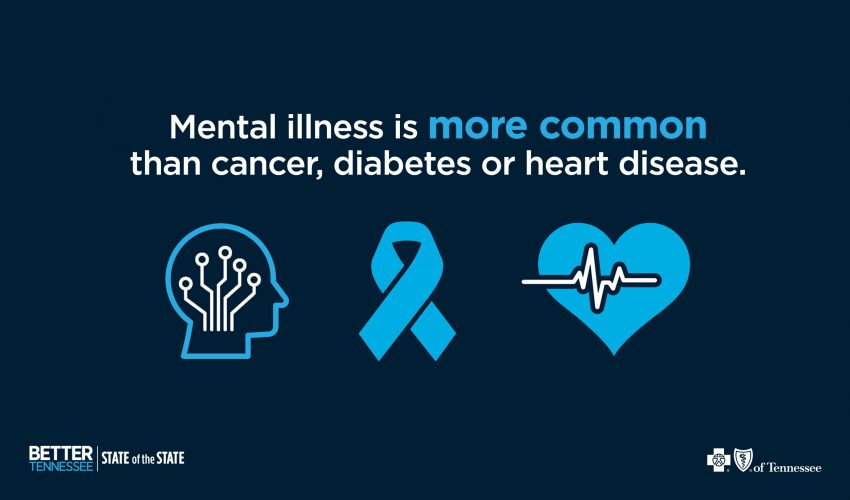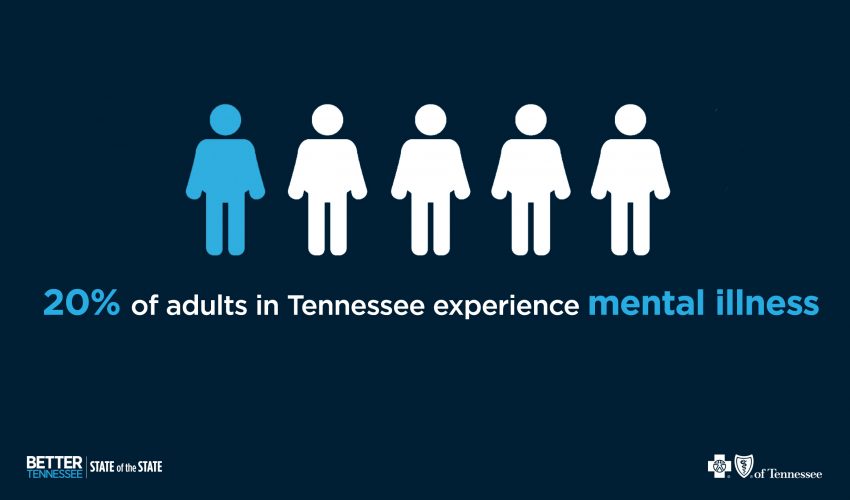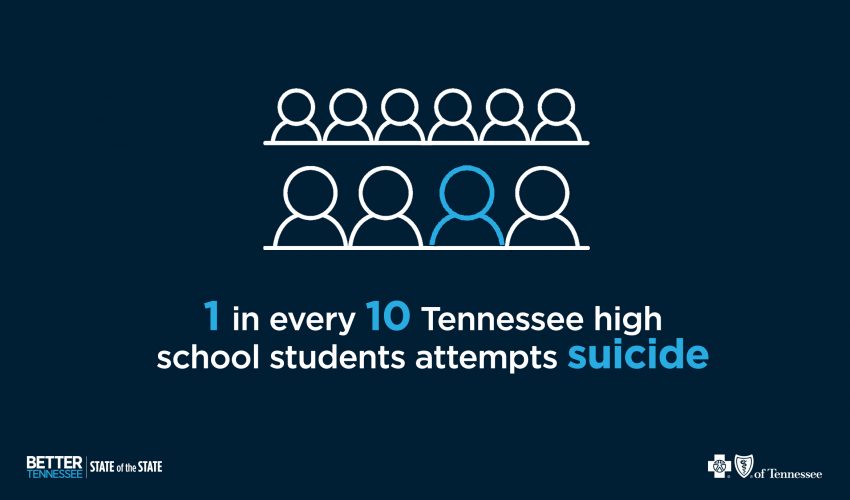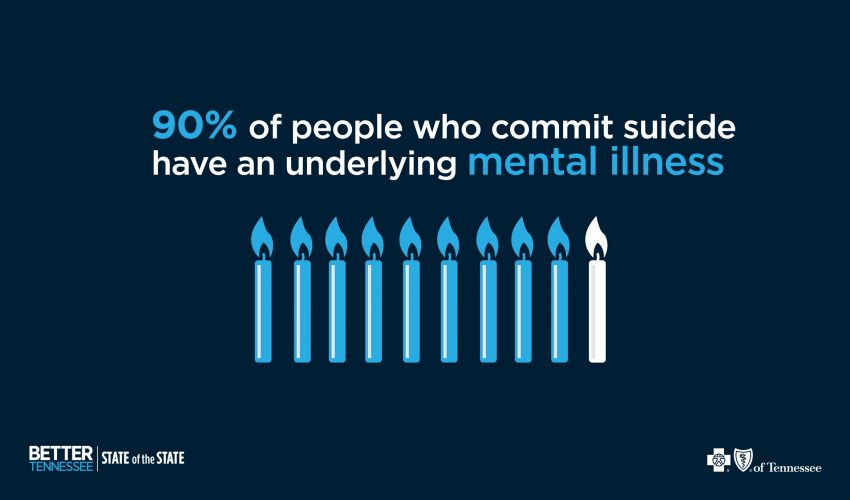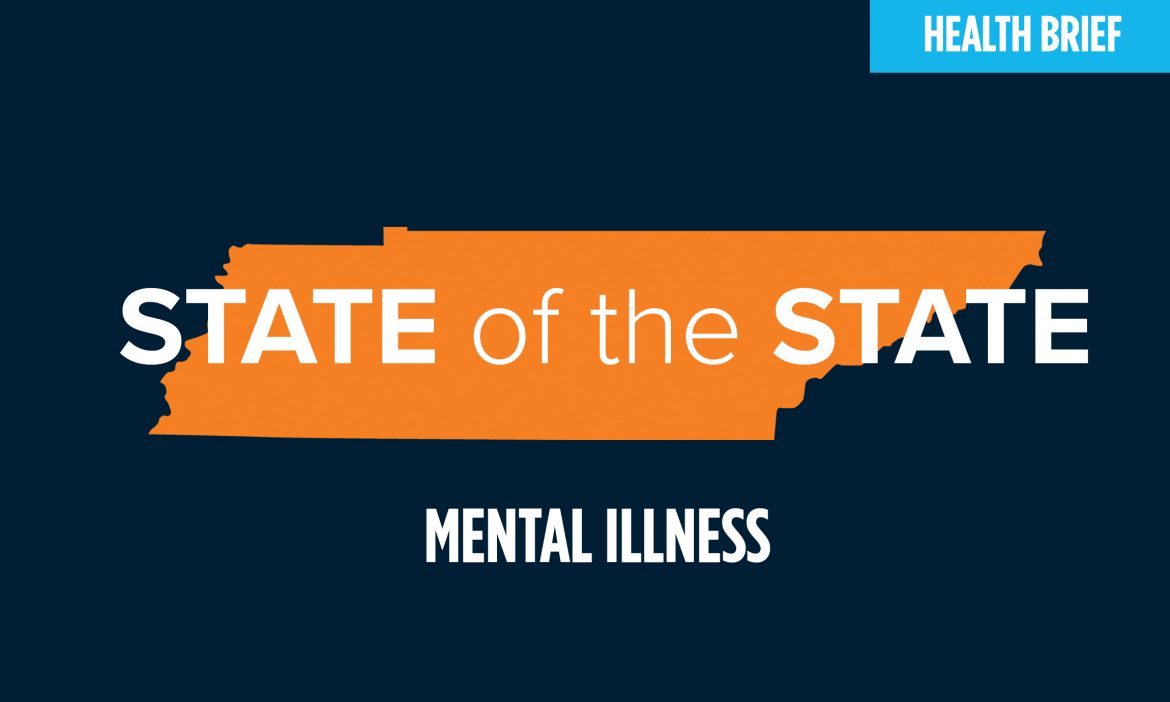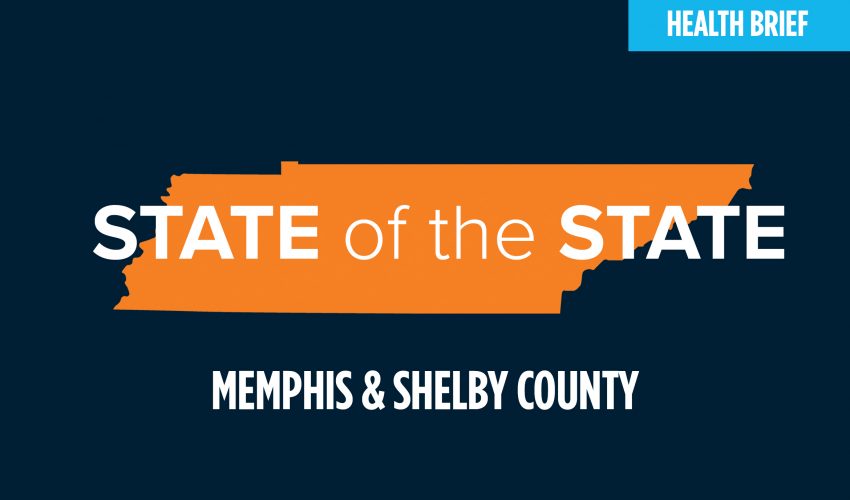Updated January 15, 2018
Health briefs offer quick but comprehensive information about some of the biggest health challenges Tennessee is facing.
Scroll down to read about mental health in our state or jump to a specific section:
Mental illness is more common than cancer, diabetes or heart disease.
Mental illness is the leading cause of disability in people ages 15 to 44 in the U.S.
90% of people who commit suicide have an underlying mental illness.
50% of people with mental illness develop symptoms by age 14. 75% have symptoms by age 24.
What is mental illness?
Mental illness is a medical condition that is diagnosable and treatable.
Mental illness affects a person’s behavior, emotions or thinking, and is considered serious when it interferes with their ability to function day to day. People with serious mental illness may have difficulty interacting with others, holding a job or coping with adversity or change. In the most severe cases, hospitalization may be necessary.
There are more than 200 classified forms of mental illness that range from mild to severe.
Some of the most common serious mental illnesses are:
- Depression
Feelings of sadness and/or a loss of interest in activities that were once enjoyed - Bipolar disorder
Also known as manic-depressive illness, a brain disorder that leads to shifts in mood and activity level, from periods of elation to periods of hopelessness - Schizophrenia
A severe disorder that can lead to a break with reality, and may include hallucinations and delusions - Anxiety disorder
Chronic anxiety that interferes with daily life
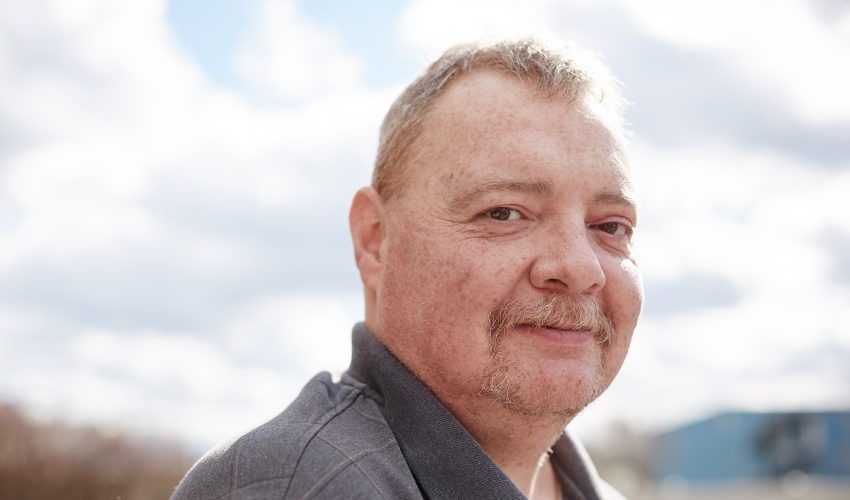
In some Tennessee counties there is only 1 mental health provider per 7,100 people. Click the photo to read how Helen Ross McNabb is changing that.
What causes mental illness?
Mental health disorders are a result of social, biological and/or genetic factors.
Chemical imbalances in the brain
Everything that happens in our body starts in the brain, which processes information as we experience it. Through chemicals called neurotransmitters, the brain tells the body how to respond. For example, if you see a baseball heading your way, you reach up to catch it, or duck to avoid it.
Research indicates that malfunctioning neurotransmitters cause the brain to have problems processing information, which leads to abnormal behavior and thinking associated with mental illness.
Trauma
Frightening, shocking and hurtful experiences such as emotional or physical abuse, violence, rape, natural disaster or witnessing a death can cause severe psychological trauma that triggers mental illness.
Genetics
Mental illness can run in families, but there is no gene that has been connected to any specific type of mental illness.
Instead, experts believe some people have a genetic tendency toward certain disorders that may or may not develop depending on other contributing factors.
How common is mental illness?
In the U.S.
18.5% of adults — nearly 44 million people — experience some form of mental illness.
4% have a serious mental illness that interferes with daily activities or relationships.
Roughly:
- 1% live with schizophrenia
- 3% have bipolar disorder
- 7% have at least one major depressive disorder
7.7 million adults in the U.S. suffer from Post-Traumatic Stress Disorder, a reaction to a shocking or dangerous event that continues long after the event has passed.
Symptoms can include flashbacks to the traumatic event, constant jitteriness and emotional numbness.
According to the Department of Veteran Affairs, PTSD affects up to:
- 12% of Gulf War veterans
- 20% of Iraq and Afghanistan war veterans
- 30% of Vietnam War veterans
In Tennessee
In 2016:
- 20% of adults in Tennessee experience mental illness
- 4.4% of adults have a serious mental illness
- 364,234 Tennesseans receive publicly funded behavioral health services
- 250,883 adults
- 113,351 children
Adult mental health in the U.S. vs. Tennessee
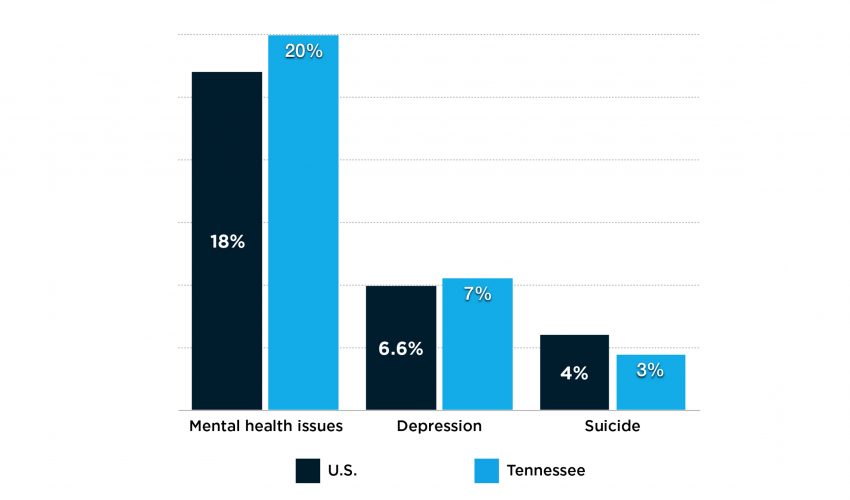
Source: National Survey on Drug Use and Health (NSDUH), SAMHSA
Depression in adolescents
Nearly 10% of adolescents (age 12-17) in Tennessee had a Major Depressive Episode (MDE), defined as a period of at least two weeks when an individual lost interest or pleasure in daily activities and showed symptoms of depression. [2013-14]
67% of adolescents who suffered a MDE did not receive treatment.
Suicide
Suicide is the #10 leading cause of death in Tennessee and the #2 leading cause of death for Tennesseans aged 10-14.
4% of adults in Tennessee had serious thoughts of suicide.
10% of Tennessee high school students reported attempting suicide at least once in the past year.
- 7% of boys
- 12% of girls
Teens who report attempting suicide, U.S. vs. Tennessee
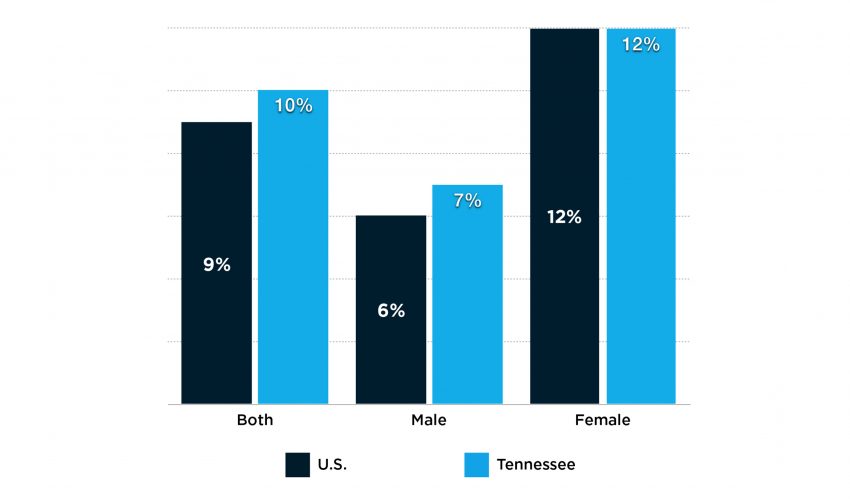
What is the impact of mental illness?
Mental health and physical health are connected.
People with schizophrenia die 17 years earlier than people with an average life expectancy.
People with bipolar disorder have a life expectancy 12 years below the norm.
Major depression is a risk factor for heart disease.
41% of adults dealing with substance abuse have a co-occurring mental illness.
Co-occurring substance use disorder and mental illness in the U.S.
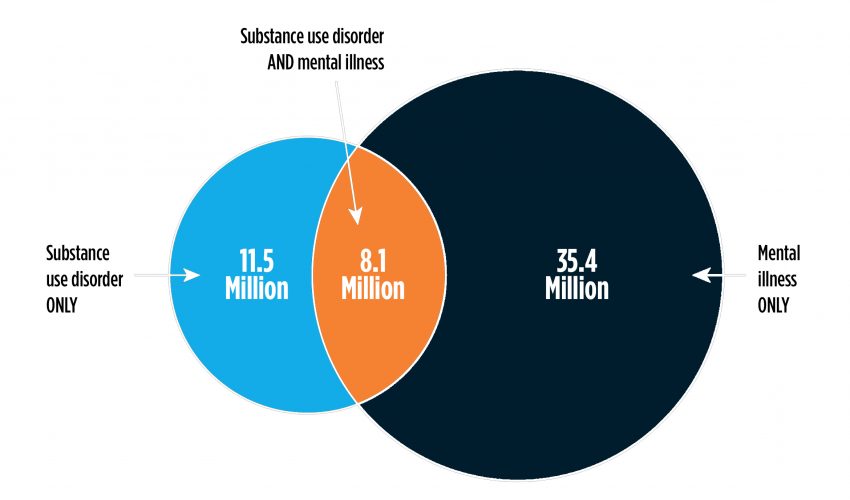
Source: SAMHSA
How is BlueCross dealing with mental illness?
The BlueCross Health Foundation awarded:
- $400,000 to the Helen Ross McNabb Center to expand its services.
- $50,000 to the Peer Recovery Call Center to expand its crisis line services.
- $200,000 to Centerstone’s crisis services line to enable counselors to implement a program of follow-up calls to high-risk callers.
- $85,000 to Mental Health America of Middle Tennessee to train first responders on recognizing and responding to mental illness when they encounter it.
In addition to supporting charitable programs that benefit all Tennesseans, BlueCross has programs in place to support members affected by mental illness.
- Members have coverage for mental health care services.
- Care managers assist and educate members, families and health care providers on decision-making, processes and treatment options.
- Care managers also help coordinate the integration of mental and physical health care treatments to work toward better overall health.
Visit bcbst.com to learn more or access these services.
INFOGRAPHICS
